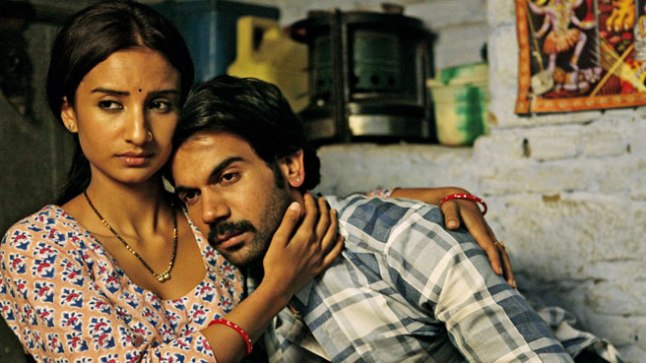The city of Mumbai is known for it’s dabbawallahs – the large group of workers, whose job is to carry lunch in boxes from thousands of homes to their destinations (the offices of the heads of these families) and back. Their methods and their process are a model for a successful supply chain, and have earned many fans – ranging from top business schools to the Royal family of UK.
In director Hansal Mehta’s latest movie, Citylights, the focus is on a lesser known group of people who also transfer boxes. These boxes contain more valuable items – diamonds, cash, and papers – and are only accessible to the parties involved. The contractors who transfer these boxes merely act as messengers, but have a risky job in hand. They cannot afford to “lose” the boxes, nor can they attempt to steal them (the boxes contain self-detonating devices). They are employees of a security agency, and almost operate with the finesse of encounter cops. Mehta gives a nice spin to their work culture and their protocol too. When the specialists in this organization are killed, they are given a unique send-off. A compatriot carries their belongings to their homes – clothes neatly ironed and shoes well polished, while delivering the news.
The protagonist in Citylights – Deepak Singh (Rajkummar Rao) – finds himself as one of these contractors and is tutored by Vishnu (the excellent Manav Kaul) on the job. (Oddly enough, their Q&A sessions reminded me of Shimit Amin’s Ab Tak Chhappan, that masterful movie on encounter cops, in which Nana Patekar teaches his new intern everything he has learnt from his experiences, in a documentary style narrative). Deepak here is a man still trying to come to terms with his family’s move to the big city from a remote village in Rajasthan (a place so obscure that, in his interview with the head of the security agency, the latter smells a rat when he mentions the place he has come from). After several unsuccessful attempts at finding a job, Deepak lands here after being spotted by Vishnu in his office.
It isn’t just Deepak’s life that is a struggle. His wife Rakhi’s (Patralekha) struggles are identical in several ways, and mirrors Deepak’s remarkably. Both land up with shady jobs on almost the same day. Rakhi’s “interview” requires her to smile while dancing, while Deepak has to crack a joke to win his job. Rakhi is asked to remove her duppatta during the interview (she is asked to turn around and is ‘checked out’ before ‘selection’), while Deepak and Vishnu are stripped at a client’s place later (during an assignment) and asked to turn and inspected similarly. And both are sacked on the same day after a tiff with their bosses, while pleading for a partial “salary” to make ends meet. There is even a brief moment when their paths merge during Deepak’s visit to a bar – albeit in his mind.
Citylights being a movie about a poor family from a village trying to find its footing in a metro, Mehta, thankfully, refrains from going the Madhur Bhandarkar way; he isn’t judgmental, and seldom tells us who is right and who is wrong. Redemption happens finally, but without punishment to “the elite” responsible for the city’s woes. With some solid scene constructions, Mehta tells us how Deepak and his family are too slow to catch up with the city. Almost throughout the movie, scenes involving Deepak and his family have a languid pace, while the city is around them is shown to be moving too fast (captured by the night time traffic in several scenes). When Vishnu makes an indirect reference about Deepak to the latter himself in a playful conversation, while showing him an apartment, Deepak is slow to react and fails to gather the point. He misses the bigger plot too, which is revealed some moments later. In another scene, he finds himself behind the wheel on a car chase at breakneck speed on the streets of Mumbai. The man has to act faster than he can think.
The movie itself is also about characters wanting both love and money. In a poignant moment, a lady is told about the death of her husband. Struggling to come to terms with the death, she reconciles in a few minutes and starts demanding the location of a box of valuables. She has lost her love; can she at least get some money? Another character does win a bagful, but only after the loss of a loved one. Life in a city can never be a fairytale; Mehta knows this very well and creates a lasting collage of images.

